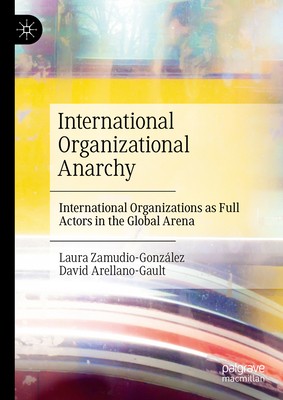
- Išsiųsime per 10–14 d.d.
- Autorius: David Arellano Gault
- Leidėjas: Palgrave Macmillan
- ISBN-10: 3031823915
- ISBN-13: 9783031823916
- Formatas: 14.8 x 21 x 1.6 cm, kieti viršeliai
- Kalba: Anglų
- Extra -20 % nuolaida šiai knygai su kodu ENG20
Atsiliepimai
Aprašymas
International organizations take part in the international scene. The importance of studying every organization as a distinct social construct means to study it by its history and environment, by its members and the power struggles they engage in, by the accidents and vicissitudes that every organization must face to deal with uncertainty in the achievement of its goals and the use of its resources. This is what Organization Theory does. All these elements are necessary for understanding IOs. It also serves to link individuals to their essential particularity--that of being a member of the global community. The development of the field of IOs research seems to depend on connecting IR and OT, but this effort is proving to be more and more challenging to fill.
This book seeks to close that gap by suggesting several critical subjects where OT and IR could interact. The overall paradigm of the book is to observe IOs by first thoroughly analyzing organization theories. The authors present a coherent and accessible synthesis of organizational theories, which scholars of international relations may find useful in advancing the study of IOs. It will also be helpful for OT professionals who want to improve their understanding of these organizing beings.
EXTRA 20 % nuolaida
Kupono kodas: ENG20
Akcija baigiasi už 6d.14:20:56
Nuolaidos kodas galioja perkant nuo 10 €. Nuolaidos nesumuojamos.

- Autorius: David Arellano Gault
- Leidėjas: Palgrave Macmillan
- ISBN-10: 3031823915
- ISBN-13: 9783031823916
- Formatas: 14.8 x 21 x 1.6 cm, kieti viršeliai
- Kalba: Anglų
International organizations take part in the international scene. The importance of studying every organization as a distinct social construct means to study it by its history and environment, by its members and the power struggles they engage in, by the accidents and vicissitudes that every organization must face to deal with uncertainty in the achievement of its goals and the use of its resources. This is what Organization Theory does. All these elements are necessary for understanding IOs. It also serves to link individuals to their essential particularity--that of being a member of the global community. The development of the field of IOs research seems to depend on connecting IR and OT, but this effort is proving to be more and more challenging to fill.
This book seeks to close that gap by suggesting several critical subjects where OT and IR could interact. The overall paradigm of the book is to observe IOs by first thoroughly analyzing organization theories. The authors present a coherent and accessible synthesis of organizational theories, which scholars of international relations may find useful in advancing the study of IOs. It will also be helpful for OT professionals who want to improve their understanding of these organizing beings.




Atsiliepimai